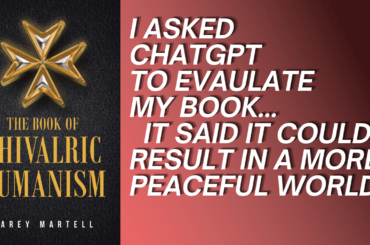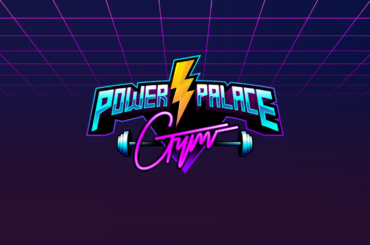This post is about my video streaming platform Zenither. Haven’t heard about it? Check it out at http://zenither.com/ because we’re doing a launch in a week. If you think it’s cool, please sign up for our mailing list to be notified when we launch. You can see a long demo video of the app at https://www.facebook.com/zenitherTV/videos/703347069851274/
For the past few weeks I’ve been posting inspirational quotes to the Zenither Facebook Page for those following our progress.
This one is perhaps among my most favorites.

I’ve had to grapple with the question of what kind of policies and terms our video streaming platform Zenither will have when we launch. The trend of late is for social media apps to ban and block discussion on sensitive political and religious issues when the viewpoint is from a so-called “alt-right” perspective. YouTube has gone so far as to implement artificial intelligence algorithms to systematically de-monetize any content the AI deems “advertiser unfriendly”, which has included news programs, gaming videos and comedy stand up routines. Even prominent news programs such as The Philip DeFranco Show have been demonetized with no recourse as part of this new policy.
I do not agree with this trend.
Something I think is unusual about me as compared to other tech startup founders in my generation, is that I am a veteran of the US Army. I joined the military because I sincerely believe in the tenets of my country and the ideals it stands for. Like every US soldier when I enlisted I made a solemn pledge to support and defend the Constitution of the United States against all enemies, foreign and domestic. I do not believe that my current status as a former soldier excuses me from this oath. This part of the soldier’s oath I made with the intention to keep it for the rest of my life as a citizen. Citizenship is sometimes taken for granted in our modern culture but as a former soldier I am intimately familiar with how important it is to have the freedoms of a civilian. During my time as a soldier there were restrictions placed on my rights (which is the case for all military personnel) so I know what it is like to live without full access to the range of rights I enjoy as an American citizen.
The most important part of the Constitution to me is the 1st Amendment; the right to freedom of speech. It is a right that many countries still deny their citizens and I think it is something worth fighting to protect.
It is important enough to me that, as a platform, I wish for Zenither to be politically impartial because I see the very real need for an ideologically neutral video streaming platform to exist in the current climate. I believe Zenither should not endorse any particular political ideology other than perhaps that “the free expression of ideas should not be infringed upon“. It is my opinion that it should treat all content equally, regardless of what it is. This position benefits everyone and disadvantages no one.
“Free speech” for ourselves and not for others is not free speech at all. That is merely authoritarianism. The Nazis were authoritarianists who passed laws to deprive their political opponents of civil liberties, and had little tolerance for meaningful opposition to their own agenda. This fact should give everyone cause for pause no matter how well intentioned you believe yourself to be in wishing to censor others.
Some may find it silly for me to think so much on this because Zenither has not yet become a market leader in the video streaming space, but I think this is the stage at when the company is going to define what it is and what it is not. So this choice on what path we’re going to take must be made now, for better or worse and regardless of what hardships may result, it is a path we must follow to the end.
Why Is Free Speech Important?
The concept of “free speech” is a counter-intuitive one for many people. It may seem easier and simpler to ban ideas which promote policies that are dangerous to the structure of society, but what is often misunderstood is that progress is created by open discussion of radical ideas.
Outlawing slavery was once considered a radical idea.
Women’s rights was once radical, too.
Gay rights especially so.
It is only through discussion and debate about radical ideas that society can determine the merits of the idea and someday those ideas may find mainstream adoption because through debate we discovered their values. But it is not guaranteed that simply because an idea is discussed that it will be adopted and it is often the case that through open debate about an idea we discover the reasons why it should not be adopted by the mainstream.
I have always been taught that the speech which requires protecting is not that which is popular, but that which the majority does not want to hear. And were free speech not a protected right in this country many of the rights we have today would not have came to be. During the first half of the 20th century when several States sought to deny voting rights to minorities it was the right to free speech that enabled opposition to these policies. There were many violent riots, to be sure, as a consequence of these movements but violence is not what created change in our society. What enabled the reforms was public discourse and debate about the merit of the ideas. This progress was only possible because the exchange could be had freely and without restriction. So I believe a society should have a high tolerance for open debate between differing opinions, and zero tolerance for violence and authoritarianism. No matter how you look at it banning certain kinds of speech is authoritarian and directly at odds with the very spirit of what it means to be American.
Many people in my generation have watched Martin Luther King Jr.’s famous ‘I have a dream speech‘. We have a recording of this speech because it was broadcast on television at a time when the ideas King expressed were very controversial and many groups did not wish to hear it. Let us not forget that even before he was assassinated, King had received many threats upon his life after delivering this speech and ultimately he would be killed by James Earl Ray, a white supremacist that wanted to silence King.
Today our culture is different; it is no longer a radical idea to think that people of different ethnicity should be treated equally in culture and by law. That all citizens have equal rights. But it once was considered radical and it is only because the freedom of speech protected those who championed these ideas after King’s death that we reached the point we are at today. We must not forget the importance of this and the role of television as a medium for the expression and debate of these ideas.
As Zenither wishes to be the future of television I think it is therefore critical that we have such an open policy so that present and future voices may be heard and able to shape society much like how Martin Luther King Jr.’s speech was able to.
Even when people use the medium of television to propose ideas which may harm society this often leads to others producing their own counter-programming to oppose these ideas, and this counter-programming may have a huge positive impact on society. An example of such counter-programming is Sesame Street which was created in the late 1960s in response to concerns that children’s programming was too violent and did little to promote educational goals or cultural diversity. The television programs that Sesame Street was created to oppose are no longer produced and mostly forgotten today, but Sesame Street has endured on.
As it is impossible to predict what kind of future radical ideas may have such positive impact in society there is no realistic way to selectively censor only those ideas which will be good for society. What single individual is capable of having that kind of foresight with 100% accuracy? There is no one who can make such predictions, and therefore we will not arrogantly attempt to pretend that we can.
Our policy must be to endorse free expression of ideas without censorship.

What about Religion?
I must also consider something most people do not.
I, personally, am atheist. I am not religious. I consider myself to be a humanist but ultimately I am a man of reason and science.
So I must ask myself, “Do my personal views on religion entitle me to reject stations which feature religious programming?”
I have considered this from many different perspectives and my conclusion is that I do not believe my personal views entitle me to censor religious programming on Zenither.
I think the sense of entitlement demonstrated by those who run companies like YouTube and Twitter (who are censoring people based on their ideological beliefs) comes from a point of view where they feel the content hosted in their applications represents them personally. I am different in that I believe only the content which I produce is specifically endorsed by me. I can think this way because Zenither is not specifically for me. It is for others, too. So rather I think by being willing to host content I personally may disagree with, what Zenither is actually endorsing is freedom of speech.
Zenither must be politically agnostic. It cannot be part of the alt-right or the left; it must be neither conservative nor liberal. Zenither, as a platform, cannot endorse or even so much as condemn one ideological point of view over another. As a product intended to allow the free exchange of ideas it can only submit itself to the belief that the cream will rise to the top; that even if the loudest voices may call for something morally atrocious, that those who call for goodness and kindness will be more persuasive if given an equal opportunity to voice themselves on the platform.
That is what Zenither will do; to give equal opportunity to have voice. So….
Some people may find they are not accepted as a Publisher to operate a Station in Zenither because they lack enough content to operate a television network (we ask applicants to have at least 100 hours of content for viewers to watch — yes we will accept YouTubers but they need to have more than a dozen 10 minute videos for people to watch or viewers will become unhappy with the poor quality experience of trying to find things to watch in the app). As a matter of practical business considerations we won’t be able to issue them a Station if they simply have very little content to broadcast on a virtual TV station.
They may be rejected because we don’t believe they have the basic business acumen to keep their Stations scheduled with quality programming at all hours of the day. (This is rather important for our business model — can you imagine if CBS or Disney just decided to stop scheduling content on their cable TV Stations? We need our Publishers to operate at a higher degree of professionalism than your average YouTuber.)
They may even be rejected because the programming they want to include in their Stations doesn’t align with the business plan for Zenither (such as, for example, pornography. We have no current plans to feature pornography).
But what we won’t reject Publisher applicants for is their ideologies simply because we do not agree with their points of view.
We will definitely have policies that content on Stations must comply with laws of the countries they stream to. If it is against the law to do something then the Station owners must comply with the laws. MBS, Inc. is not subject to federal broadcasting regulations and while we need not comply with all laws intended for traditional broadcasters, I feel we have a social responsibility to do so especially in regards to the spirit of the intent behind “must carry” regulations.
Television has traditionally been treated as a public utility and while internet-distributed video programming is not regulated the way traditional TV stations are, I feel we must self-regulate ourselves in a fashion that continues the historical precedents which have been set. I think it is important that we do this as the bulk of people’s communications shift from traditional radio transmissions to internet-based applications. Therefore we will comply with laws and this includes operating as a carrier of multi-channel programming which does not discriminate against content owners in ways that would be illegal if we were a traditional carrier of television content. It is my opinion the way companies like YouTube and Twitter censor people would be illegal if they were bound by the laws that regulate traditional communication companies.
Tech startups like MBS, Inc. are not required by law to comply with these must-carry rules but I feel a strong sense of civic duty to adhere to the intention behind these laws. As communications move from public utilities to digital internet distributed software it is important that gate keepers understand the gate we are to protect is meant for all to pass through equally.
As gate keepers our job is to ensure people do not block the gate.
I’m not Alone in my Opinion
The Electronic Frontier Foundation recently published an editorial about this very thing. I think this quote really captures the heart of what is at issue here;
All fair-minded people must stand against the hateful violence and aggression that seems to be growing across our country. But we must also recognize that on the Internet, any tactic used now to silence neo-Nazis will soon be used against others, including people whose opinions we agree with.
I agree that it is a slippery slope for a communication platform to dictate acceptable speech on grounds of political or religious ideology. Censorship does not make these individuals go away. They only become angrier and more determined. It is wiser to have a dialogue, even if that dialogue is merely debate through the medium of television. At least through dialogue there is an opportunity for them to be informed about a larger viewpoint they may not have been able to hear if they were shut out from debate. Zenither will create opportunities for such dialogues to occur.
How Will Zenither Allow People to Avoid Content They Don’t Want to See?
Just as I believe people should have the right to share and exchange ideas freely, I also believe people have the right to decide to avoid speech they do not wish to see. Rather than self-impose censorship on Stations by banning content that some users may find disagreeable, Zenither will instead give Viewer accounts a feature to “hide” a Station and its related content from the TV guide and Search features. They will also not see these hidden stations in recommendation lists, either. The ability to “hide” a Station is personalized; it is specific to the Viewer account which has hidden the Station. It is a similar option to blocking someone on Facebook or Twitter. It was always my intention to create such a feature anyway as part of parental control settings. I do believe parents have the right to restrict the viewing habits of their children. So this is how we will handle the matter.
It is important to understand that due to Zenither’s unique business model in the video streaming space we will not necessarily profit from any controversial programming released by third party station owners. It is our intention that third party station owners sell their own ad inventory and keep 100% of that revenue. It is our intention that MBS, Inc. will primarily produce revenue by operating our own stations, which we will get the ad revenue from. But we also produce revenue through a la carte premium station subscriptions, and there may well be a situation where we have controversial stations available for a premium subscription. Notable examples of controversial stations we might carry in the future include Fox News, CNN, Al Jazeera and Trinity Broadcasting Network.
Simply carrying the Stations does not necessarily mean we endorse them. This is because Zenither is intended to be a multi-channel video programming carrier; a virtual television carrier. Simply by carrying a Station does not mean we as a company (or I personally) will agree with all the content the Stations broadcast. What we are promoting is freedom of speech. I hope people can be mature and wise about this, understand the difference, and agree it is important for Zenither to do. Someone has to do it and since the existing video streaming platforms won’t be politically impartial we are going to rise to the challenge of being what they refuse to be, and that someone needs to be for the common good.
I’d like to end this post with another quote from the Electronic Frontier Foundation;
Protecting free speech is not something we do because we agree with all of the speech that gets protected. We do it because we believe that no one—not the government and not private commercial enterprises—should decide who gets to speak and who doesn’t.
I agree and it is my intention to not block or ban Station owners simply because I or others at my company dislike what is being said. I would like Zenither to be a platform where many different kinds of content can be watched, and for individuals to decide what they wish to watch.
Like what you’re hearing? Please sign up to our mailing list to be notified when Zenither launches in a week.
Update: I’ve received some questions about this and decided to include my response at the end of this post.
Question: “So you’re going the whole “net neutrality” method of not disturbing the contents of the pipes just providing them? I want to make sure that I’m understanding you correctly.
Also is there any “red line” you have in terms of a station attempting to use the platform beyond commentary and analysis of events and instead transitioning to calls to action that may violate or end up violating the law (eg what many view Limbaugh and TYT of doing at times)?”
Answer: It is similar to net neutrality but more closely to what net neutrality is based in, which is the must-carry laws that regulate the TV industry in the States.
The Supreme Court ruled on this in ’97 when cable networks were refusing to carry local broadcasters in their services because the cable companies wanted less competition for their own TV networks and those of major companies like Turner Broadcasting. Turner had deals similar to what Netflix has arranged today with internet providers to give them preference over others.
This matter got taken all the way to the Supreme Court. The smaller local broadcasters argued that by hampering their access to cable customers, an increasing segment of the local television audience, this posed a threat to the viability of free-to-view broadcast television, which they argued was a worthy public good. Furthermore Congress had earlier passed the 1992 Cable Act which prevented cable carriers from charging small and local TV stations a fee to be carried, instead ensuring they were paid by the carrier when their signal was listed in the service (carriage fees).
“Must carry” laws ensure the right to free speech for television stations is not infringed on by cable carriers but no similar kind of law currently exists for internet based communication companies because they are not currently treated as public utilities — which they probably ought to be, but only after the feds fully understand the key differences between the traditional and new media companies because there are substantial differences. However the idea that television is a public good and necessary for public discourse and debate, and people should not be kicked off these services simply for expressing ideas the carrier may disagree with , is something that needs protecting in light of what Twitter and YouTube are doing as of present. As an example your phone carrier isn’t allowed to cancel your phone service because you used it to tell someone to vote for Trump or because you expressed a certain religious idea. Nor can they kick a station off a cable carrier because they broadcast a political or religious viewpoint, or ban you from watching that program.
These are protections consumers have from traditional communication companies but do not have yet from internet based app services. But they should and the first step toward it is to set the proper example, and implement as company policy that we will respect the spirit of these laws as much as possible.
If someone like Limbaugh tells viewers to commit a crime and this violates the law, that is something we will address but it is not our place to decide what violates the law. I’m not going to have some low paid customer service rep (or worse, some volunteer social justice warrior as with Twitter and YouTube’s programs) decide what is against the law and ban people from the service. That is socially irresponsible.
What is against the law is a decision for law enforcement and the courts. If law enforcement agencies file a complaint it is something we will listen to and deal with. If they do not, we’re not going to pretend to be judge and jury in their absence.
What I’d like to see is some kind of self governing body of stations that handles its own enforcement within the group, similar to the MPAA but composed of the next generation of station owners. It may be difficult to create but I think it’s the first step toward balancing free speech. And tort laws still exist; people can sue broadcasters they feel are compelling others to crime and hold them accountable for incitement. The law needs to be dealt with in the correct medium, which is the courts, the same way it is for traditional television. Virtual TV services need to behave the same way. The Supreme Court made a ruling on what the limits of incitement are and it is something that is complicated to determine. It can’t be arbitrarily decided and circumventing the courts on an issue related to free speech shouldn’t be allowed. As a platform we must be impartial on these issues and beholden only to the public. We recognize that Government represents the interests of the public. Here in the US the government has protections to allow for the freedom of speech and it’s our job as a next gen communication company to ensure these rights are not infringed upon.




